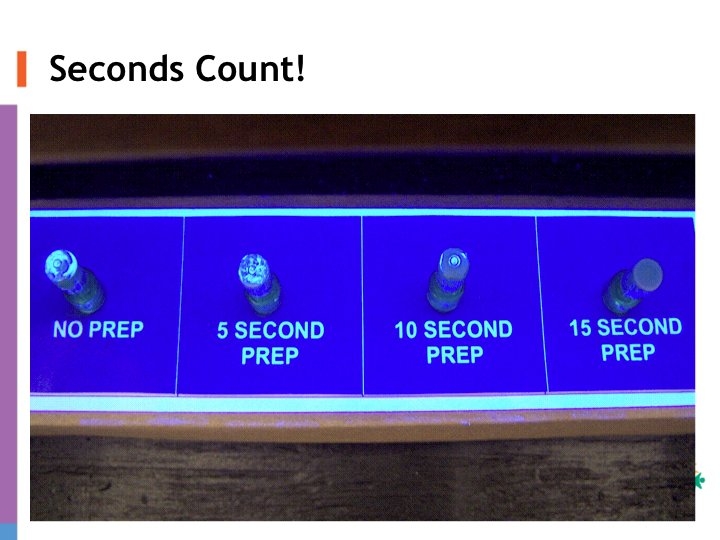- Community
-
Programs
- Schools
-
Careers
- RN Specialties
- Best RN Jobs and Salaries
- Aesthetic Nurse
- Nursing Informatics
- Nurse Case Manager
- NICU Nurse
- Forensic Nurse
- Labor and Delivery Nurse
- Psychiatric Nurse
- Pediatric Nurse
- Travel Nurse
- Telemetry Nurse
- Dermatology Nurse
- Nurse Practitioner
- Best NP Jobs and Salaries
- Family NP (FNP)
- Pediatric NP
- Neonatal NP
- Oncology NP
- Acute Care NP
- Aesthetic NP
- Women's Health NP
- Adult-Gerontology NP
- Orthopedic NP
- Emergency NP
- Psychiatric-Mental Health NP (PMHNP)
- APRN
- Nurse Educator
- Nurse Administrator
- Certified Nurse Midwife (CNM)
- Clinical Nurse Specialist (CNS)
- Certified Registered Nurse Anesthetist (CRNA)
- Resources
- Education

 This is a poster that is in the med rooms at our facilities. As you can see, a simple wipe would do absolutely nothing in terms of removing the microbes from the hub. I am surprised that many people feel that a "quick wipe" is much better than nothing at all. Unless it scrubbed for 15 sec and left to dry 15 sec, then it really isn't doing much good for the patient in terms of protecting them from infection. However, I work in the ICU and am guilty of pushing drugs without wiping first if in an emergent situation.
This is a poster that is in the med rooms at our facilities. As you can see, a simple wipe would do absolutely nothing in terms of removing the microbes from the hub. I am surprised that many people feel that a "quick wipe" is much better than nothing at all. Unless it scrubbed for 15 sec and left to dry 15 sec, then it really isn't doing much good for the patient in terms of protecting them from infection. However, I work in the ICU and am guilty of pushing drugs without wiping first if in an emergent situation.
Anna Flaxis, BSN, RN
1 Article; 2,816 Posts
I cannot think of any situation where taking 3 seconds to scrub the hub is going to result in a bad outcome. On the other hand, I can easily imagine that repeatedly accessing a VAD without even a cursory effort at hub decontamination could result in a bad outcome.